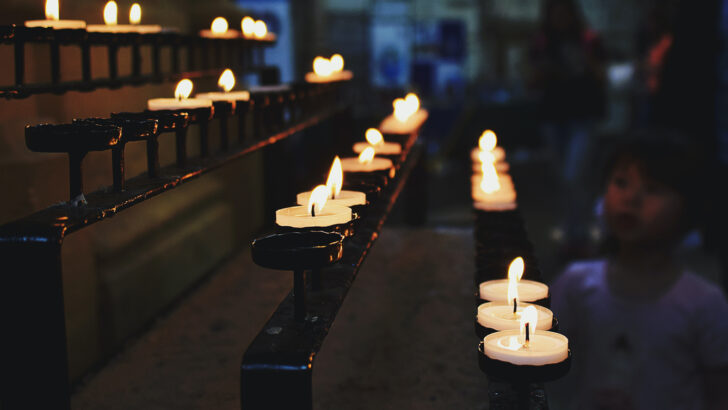It is a great misconception to think that only minority groups can suffer discrimination. In fact, majority groups have often suffered discrimination by powerful minorities. In South Africa, the black majority suffered discrimination at the hands of a minority – as was the case in most colonised African or Asian nations. In Ireland too, the Catholic majority suffered discrimination by a ruling minority during Penal times.
This discrimination took place in the wake of a revolution of religious thought, known as the Protestant Reformation. It’s often forgotten that much of the Irish elite embraced the reformation, including bishops and clergy. In 1536, the Irish parliament even formally accepted Henry VIII as head of the Church. However, most ordinary people held stubbornly to the old faith. Centuries of persecution and discrimination followed, as the price of their obstinate refusal to accept the new ideology.
Revolution
Recent decades have brought another revolution in thought and morality to the western world – a sort of secular reformation. This has been embraced by the Irish political class, but somewhat less so by the ordinary people. Once again, as half a millennium ago, those who adhere to the Catholic Faith find themselves particularly out of favour. Their culture and traditional beliefs are increasingly seen as anathema to modern, liberal Ireland.
Laws discriminating against the Catholic majority have once again been passed. In 2018, the Government passed a law forbidding Catholic schools from selecting pupils on the basis of their religion. Yet all other religious groups remain free to do this. Only the Catholic community is denied the right to freedom of association in education.
Yet the most insidious forms of discrimination happen behind closed doors. For decades now, there have been few, if any, practising Catholics working in the Irish secular media. The media is arguably our most powerful cultural institution, since it shapes the minds of voters who then elect the Government and decide referenda. Culture lies upstream of politics, after all.
Irish people are generally tolerant, but polls show that many risk being made dissidents for not updating their opinions to the correct ones”
Other key institutions which shape voters’ minds are our educational establishments. Irish third level institutions are becoming cold houses for Catholics, Muslims, certain feminists and others. We recently saw Mary Kenny’s invitation to speak at the University of Limerick rescinded, due to her unsanctioned opinions on transgender issues. Yet how can Ireland become a truly diverse society, if only one opinion is permitted on controversial issues?
How can Muslims feel comfortable articulating the Islamic perspective on sensitive issues in such a political environment, particularly if the Government’s ill-defined proposed laws restricting speech are passed. Are our politicians simply incapable of defending their ideas in the arena of open debate? Perhaps criminalising the speech of political opponents is simply easier.
Dissident
Such laws echo the treatment of dissident thought in Eastern Europe’s communist bloc countries. In Poland and Czechoslovakia, the state sought to restrict the Church and to control religious education. Similarly, the Irish state now wants to mandate what Catholic schools teach as regards contentious moral issues.
Czech writer and dissident Václav Havel wrote how the Communist regimes forced citizens to “live within a lie”. In 1979, he wrote that, “we never decided to become dissidents. We have been transformed into them, without quite knowing how, sometimes we have ended up in prison without precisely knowing how. We simply went ahead and did certain things that we felt we ought to do, and that seemed to us decent to do, nothing more nor less”.
Irish people are generally tolerant, but polls show that many risk being made dissidents for not updating their opinions to the correct ones. There is a gulf opening up between the governed and those who govern on many contentious issues. Polls show that only 17% agree with the Government’s gender self-identification laws, for example. Yet instead of listening to the concerns of the majority, the State response is to restrict the rights to protest and speech. Interestingly, Irish activism as regards such issues is being led by secular feminists, not Catholics. There is no sign of a coherent Catholic political voice emerging in Ireland. My sense is of a Church nervously and quietly fading away, as is happening in England.
The change in civilisation we are witnessing today is the greatest change since the invention of the wheel”
In England and Wales, Christians are now a minority group, with the 2021 Census showing that just 46.2% of people identify as Christians. This was down from 59.3% of the population in the 2011 census, a remarkable 13-percentage point fall in ten years. In the UK, however, there is little public or official hostility to Christianity. It is regarded as just another eccentric hobby. It probably helps that the mild-mannered Church of England is also more aligned with modern ideas, in terms of having women clergy and married priests and so forth.
In Ireland, Catholics remain nominally a majority, with 69% of the population ticking the Roman Catholic box in the 2022 census. Yet 66% of the Irish population voted to legalise abortion in 2018. Few self-identified Catholics practice their religion. Of these, an even smaller minority actually believe in Catholic teachings on the hot button issues. Indeed, few seem to know what those Catholic teachings are.
Wholesale
As the Synodal process progresses, wholesale changes of historic teachings are increasingly mooted, to the delight of some, and the dismay of others. Cardinal Jean-Claude Hollerich of Luxembourg is president of the Commission of the Bishops’ Conferences of the EU, and Relator General of the Synod of Bishops. In a 2022 interview with the German news agency KNA, he expressed the view that contentious Church teachings could change, saying “we cannot give the answers of the past to the questions of tomorrow” and that “the change in civilisation we are witnessing today is the greatest change since the invention of the wheel…The Church has always moved with the times and has always adapted… Today we must be faster”. Yet other Church leaders say core teachings simply cannot be changed. Whatever the theological niceties of such issues, there is certainly confusion and division within the Church at all levels.
What does this mean for a shrinking Catholic community facing a world that is increasingly unfriendly to it? Can a house divided against itself stand? Amidst a wider global revolution – a second reformation – in thought, technology and morality, the greater question is now where the Church stands on this revolution. That was once crystal clear, but it no longer is.
Perhaps this future place of minority Catholic communities in Ireland is to become something analogous to the Amish in the United States, who live a simpler, more old-fashioned way of life”
The bishops’ crozier symbolises their role as shepherds. They must peer through the theological mists, and tell their flock whether the strange form approaching in the gloaming is a helpful sheepdog, or a deadly wolf. Perhaps the most interesting answer would be ‘both’ – perhaps some current insights can help the Church, while other aspects of the modern world may present obstacles.
Or perhaps a hyper-technological world that changes by the minute is fundamentally incomprehensible to a 2,000-year-old institution which thinks in centuries. Perhaps this is why the Church now seems more a confused observer, rather than an active participant in world events.
Perhaps this future place of minority Catholic communities in Ireland is to become something analogous to the Amish in the United States, who live a simpler, more old-fashioned way of life. Their eccentric contrast to the hectic, modern world can seem a balm to some, and foolish to others. Yet they live decidedly apart from modernity.
By contrast, Catholic leaders say they want the Church to stay engaged with the modern world, and up to speed with it. They don’t appear to have considered that the modern world might not want the Church to be part of it at all. No matter how many of its teachings are updated.


 Rory Fitzgerald
Rory Fitzgerald
